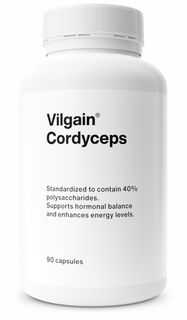Medicinal mushrooms
Vital mushrooms have been an integral part of Eastern medicine for several thousand years, where they have been used to treat or prevent certain ailments of the human body. Due to their high content of beta‑glucans, antioxidants, lectins and other health‑promoting substances, they are classified in Western culture as one of the so‑called superfoods.
Types of vital mushrooms
Although medicinal mushrooms have a common name, the effects of these mushrooms vary greatly depending on the amount and type of substances they contain. Among the most popular vital mushrooms are:
- reishi (Czech for glossy cucumber) is one of the most popular functional mushrooms. It can improve sleep, anxiety, concentration, or act as a supportive therapy for depression;
- hericium (coralwort) is particularly associated with supporting brain functions such as memory or concentration;
- chaga (rhizome) is characterised by its high antioxidant content, which makes it anti‑inflammatory and also slows down cell ageing;
- shiitake (shiitake mushroom) is a popular ingredient, especially in Asian cuisine. It contains the substance eritanenin, which has positive effects in lowering blood cholesterol levels. It may also have a positive effect on the cardiovascular system;
- cordyceps (red caterpillar) is gaining popularity as a pre‑workout, the use of which can improve athletic performance and accelerate recovery;
- theoyster mushroom is a fungus well known in our environment. It is associated with anti‑inflammatory or antioxidant effects.
Vital mushrooms represent an as yet understudied group of supplements whose effects will need to be verified in further studies. To achieve positive effects, it is advisable to use concentrated forms of supplements such as extracts or tinctures. It is advisable to consult a doctor when taking them together with medicines.


